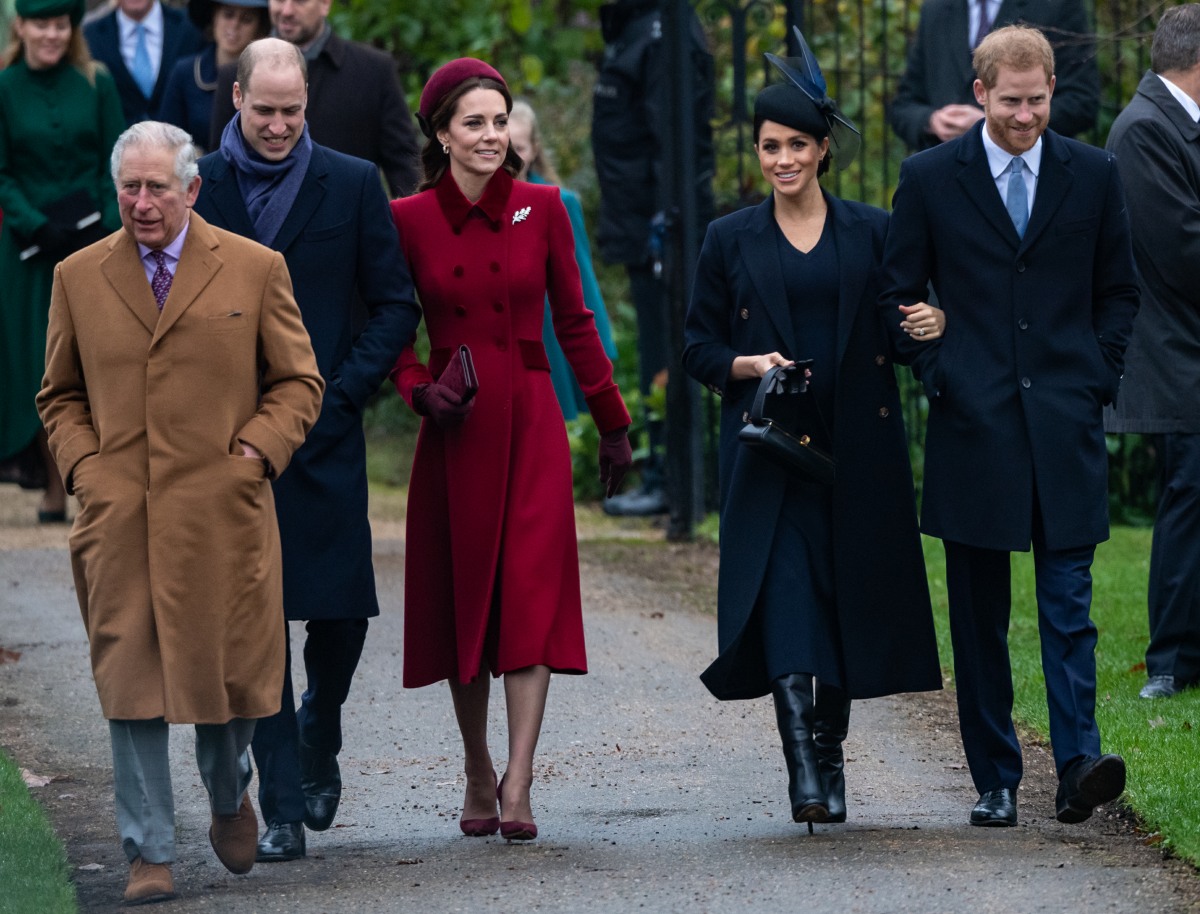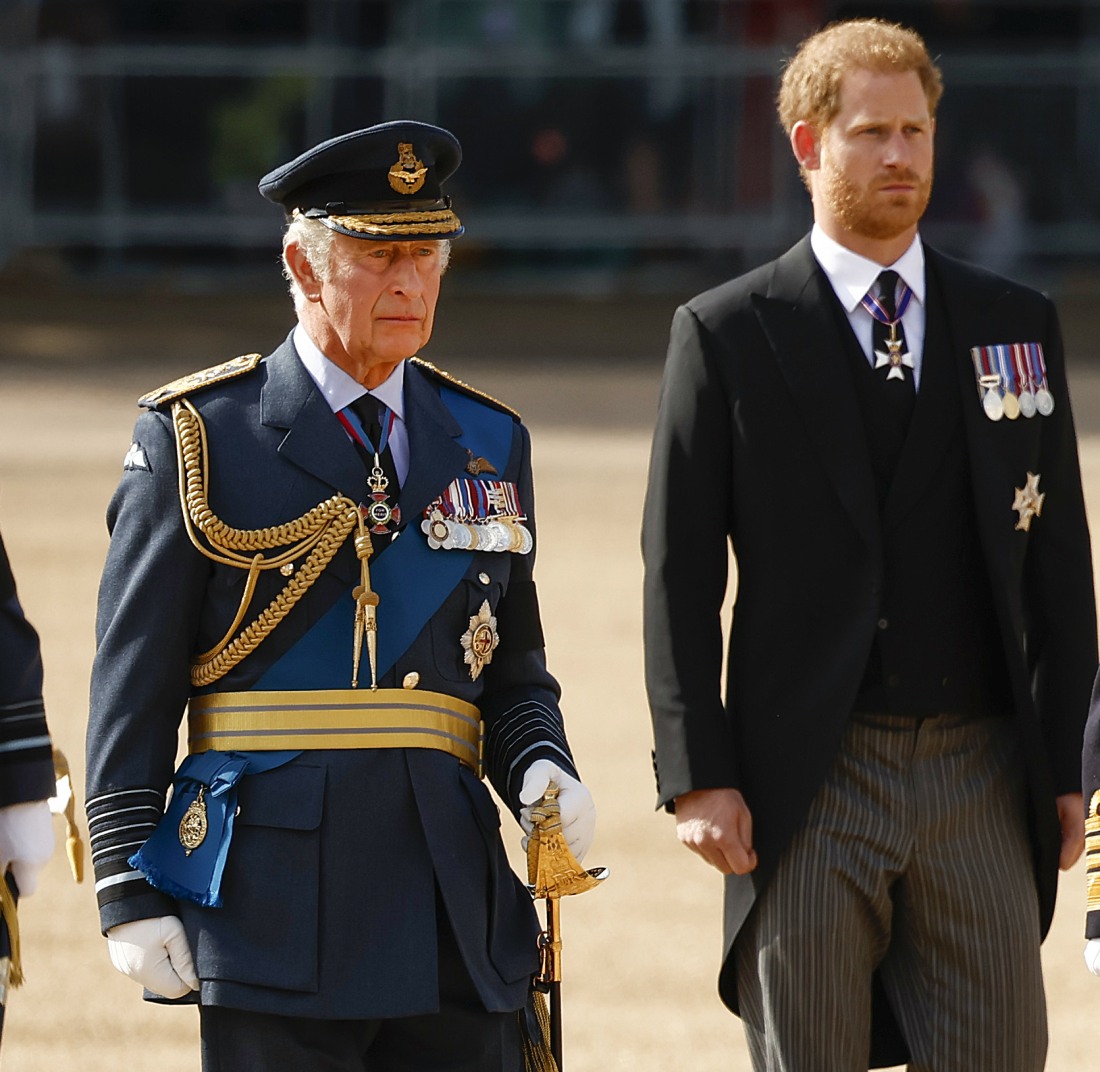Will King Charles feel emboldened to show candor in his pre-Chubbly interview?

“Never complain, never explain” was a PR brand that worked for Queen Elizabeth II – she never gave interviews, and the only time anyone heard her voice was in carefully controlled speeches, videos and stage-managed appearances. There was some hope that strategy would die with QEII. One of the minor goals for Prince Harry, in writing his memoir, was showing the value of putting his name on his story – for better or for worse, he said or wrote all of it, come what may. There has been some lowkey chatter that under King Charles, the palace communications might run a bit differently, that people might go on the record, that (gasp) Charles and Prince William might even give interviews. Reportedly, Charles is considering a sit-down interview with the BBC ahead of his Clowning. The Daily Beast’s Royalist column has a piece (written by Tim Teeman, with a much more American perspective) about what that would mean and whether the palace comms offices should really change the way they do business. Some highlights:
Charles’s interview needs to be noteworthy: Charles’ coronation interview will have to show a bit of leg. After all, it is coming after Harry and Meghan’s with Oprah Winfrey, their six-part Netflix show, and that memoir of endless OMGs. Will it be as explosive? The interviewer will ask about Prince Harry and Meghan Markle, of course, and then the question is how much detail will Charles give. Will it be a trickle compared to Harry’s torrent in the memoir Spare? Will Prince William say something? Or will the royal principle of silence and non-engagement reign? The latter is more likely. A lack of candor is the royal way; candor is seen dolorously, even if the only truly discreet royal—Queen Elizabeth—is now dead. She never divulged anything, believing secrecy and mystique were vital to keeping the monarchy interesting, and the taxpayer pounds and tourist coins rolling in.
What is stopping Charles and William from telling their stories? For one, something personal. They may not want to imperil already tender relationships damaged by the stories within the memoir, and all the media commentary that followed in its wake. If there is a way to eventually reconcile, what good will their own bitching session do? They may see no benefit for them publicly to be seen giving their side, or continuing the feud. Another thing is, the royals are practiced in the art of watching most scandals and blaring headlines recede in time. The Palace thinking may be: they survived the far more nuclear fallout of the Oprah Winfrey interview, which remains the Palace public relations disaster by which all others can be measured, alongside the queen’s initial handling of the death of Princess Diana.
What ‘Spare’ has changed: Harry’s memoir has necessitated a different kind of soul-searching for Charles, William, and their PR teams. For all the furore, all parties, now a few weeks later, have returned to their respective corners and are just—how British, after all dishing and bullets have been dispensed—carrying on, carrying on. Princess Kate is striking out on her own on a well-meaning mission to improve children’s “early years,” which would seem agreeably beneficent if its presence didn’t underscore how governments and social programs have failed children over and over again.
Kate & William’s rebrand: Still, the royal message is: Kate does something. This is an important message in the wake of Harry’s memoir painting her and William as a judgy, sniping pair of scolds, admonishing Meghan for being inappropriate (about everything), and Harry for wanting something different. Kate comes off as clipped but hardly Cruella; William is spared nothing. He is painted as an arrogant, hectoring bully, and the split between the brothers remains the immovable thorn in family relations.
What ‘Spare’ revealed about Charles: King Charles, by contrast, emerges as a classic upper-class twit—well-meaning (kind of), hopelessly at sea dealing with emotions, detached, worried for himself, worried about everything, ruthless-in-aspiration but also ineffectual. It tells you everything that the Archbishop of Canterbury, Justin Welby, has been reportedly prevailed upon to mediate to get Harry and Meghan to the coronation in as functional order as possible, much to William’s reported ire.
Very few denials for ‘Spare’: And yet, the brutality of his memoir is in the fluently written (literal) execution and calculatedly bitter aftertaste—both the takedown, and the spirit of the takedown. Not much has been denied by the usual scurrying royal sources. Sure, a few dates and details here and there, but nothing of substance. The memoir instead laid bare family tensions starkly. It has done damage not of the immediately explosive kind but perhaps more longer-term and corrosive….instead of blowing up the royal family, Harry’s memoir showed that despite the outward fine costuming, the deep and shallow emotions, the arguments and pettiness, the squabbling and resentments, are universally familiar. William may feel the most mortified and betrayed of all—for the attacks on him and on Kate. But there it is, all out there.
Charles & William can tell their own stories now: Maybe the royals—all of them—could usefully dwell in the frothing water of Harry’s revelation waterfall. After every Harry and Meghan gossip-bomb, sources within the Palace typically spin whatever line they can to discredit or muddy the claim. Maybe a better response this time, if not to be as candid as Harry was, is to at least be inspired or emboldened by his candor, and the response to it, to know that they too may tell their own stories. And however they tell them, the world will keep spinning on.
[From The Daily Beast]
It’s not even fundamentally a PR question, or a press strategy question, it’s the whole essence of the “magic and mystery” of the monarchy – Spare exposed that there is no real mystery or magic, there’s just neglect, rage, pathology, bad parenting, financial disputes, and profound dysfunction. Charles and William believe that if they just ignore Harry and reset and rebrand, they can somehow retain the magic and mystery of the monarchy through performative silence and sending their courtiers out to brief against the Sussexes. That strategy was already strained, if not broken, in QEII’s final years. What I’ve believed for some time now is that Charles would actually do himself and his reign a world of good by simply showing some humility, however performative: say that he’s been a lousy father, but he loves his sons and grandchildren and he’s trying to figure it out. That would shut down so much of this drama. Which means he probably won’t do it.
Photos courtesy of Instar, WENN and Avalon Red.
Source: Read Full Article

